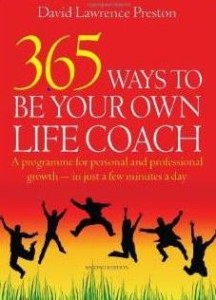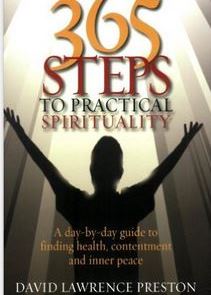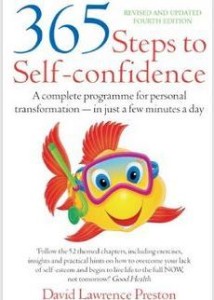Suggestions have a big influence over our lives. Tell anyone something convincingly enough and they’ll accept what you say. Tell them over and over again and sooner or later they’ll start to believe you.
Unfortunately it’s often the suggestions of others that we allow to control us. For instance:
- Advertisers use them to persuade us to buy their products. Promotional suggestions are often recalled years after they ceased to be used.
- Politicians use them too with catchy phrases (whether or not they’re true) as we’ve recently seen with the election of Donald Trump and the Brexit referendum.
- Parents use them all the time. Young children tend to believe everything their parents say. E.g. when a young child gets hurt and Mum ‘kisses it better’ it does feel better, even though there’s no logical reason why it should.
- Placebos – pills and potions with no active ingredients – can cure illnesses for no other reason than the patient believes they can. Placebos were once treated as a bit of a joke – as if the patient were ‘fooled’ into getting well -but now they’re taken very seriously indeed.
- Suggestions don’t necessarily have to be direct: parents who receive a letter from school about head lice in their child’s class often feel itchy!
- Nor do suggestions have to be verbal. Non-verbals (gestures, facial expressions and so on) can be even more powerful, and verbal suggestions backed up by visual, taste, tactile or olfactory stimuli can be extremely compelling.
- Some hospital radio stations do not play certain records because of the effect they could have on patient recovery. For example, ‘My Way’ (‘And now the end is near, and so I face the final curtain’), ’ ‘The First Cut Is The Deepest’, ‘I Just Died In Your Arms Tonight’ and ‘Help Me Make It Through The Night’ contain some unhelpful suggestions!
You’ve used suggestion many times, and it has also been used on you. You can learn to make good use of this vital tool to:
- help internalise your goals.
- replace negative attitudes and beliefs with positive ones.
- relax and combat stress.
- cultivate better relationships with yourself and others.
- change unwanted habits and personality traits.
- build confidence in yourself and your abilities.
… and for many other purposes.
Suggestion, Affirmations and the Law of Attraction
Affirmations are simply suggestions made to ourselves – statements that represent how we are or how we want our lives to be. They help bring into effect the great Universal Law of Attraction:
Whatever your mind dwells upon, with feeling, you attract into your life.
Think about it – do you know anyone who is always talking about their illnesses and who is always ill? Or anyone who is always running themselves down, and who consequently never achieves very much?
Affirmations are powerful tools that use the power of structured repetition. One of the best known was formulated by Emil Coué in the 1920’s: ‘Every day in every way, I’m getting better and better.’ He helped many people to heal themselves using this simple phrase. Try it for yourself!
Properly phrased affirmations make a big impact on your unconscious, but be aware you must observe certain rules, otherwise they may backfire.
The following rules apply to affirmations. They’re even more effective when used in conjunction with deep relaxation (this is called ‘autosuggestion’) – but slightly different rules apply.
Personalise your affirmations
Affirmations which attempt to change other people are totally ineffective. Repeating ‘Jim loves me’ does not work, because only Jim can make this choices. But you can affirm ‘I am attracting a wonderful person into my life who has… (all the qualities you’re looking for)’ You may not win Jim over, but you will find someone to your liking.
A simple way to personalise your affirmations is to use the first person pronoun, ‘I’. For example:
- I accept, love and approve of myself.
- Every day, I am becoming more calm, peaceful and relaxed.
- I am whole, perfect, strong, powerful, loving, peaceful and happy.
- I am a positive person. I think, act and talk positively at all times.
Another way to personalise – and strengthen – your affirmations – is to use the ‘first, second and third person’ technique. Let’s suppose you want to be a calmer and more confident person. Add your first name and affirm:
- I, Chris, am a calm and confident person.
- You, Chris, are a calm and confident person.
- Chris is a calm and confident person.
Use positive words and phrases
It’s important to always use words and phrases that express what you want, not what you don’t want. Otherwise you might inadvertently end up with the opposite of what you intended.
The unconscious often overlooks a negation if it occurs in the middle of a sentence. If you affirm, ‘I will not fail’, only the word ‘fail’ registers. It’s far better to affirm, ‘I am a success’.
I recently heard a woman telling how she stuck little notices all over her house one morning reminding her not to forget her son’s team’s football kit for the match that afternoon. The notes said, ‘Don’t forget the kit’. Guess what happened!
Make your affirmations credible
This is one of the biggest secrets for using self-suggestion. The purpose of self-suggestion is to impress your unconscious with empowering beliefs which reflect the way you want to be. This is why some writers recommend stating all your affirmations in the present tense, i.e. beginning your affirmations with ‘I am’, ‘I can’, ‘I have’, ‘I do’ etc.
The problem, though, is that an affirmation which totally contradicts your current belief system alerts a mechanism in the brain known as the Reticular Activating System (or ‘Critical Censor’). It can assert itself in many ways, such as an uncomfortable feeling in the chest or solar plexus or a quiet but persistent voice in your head saying, ‘Don’t be ridiculous.’ This is your old programming and conditioning trying to reassert itself.
How do you get round this?
Firstly, consider affirmations as a tool for change rather than statements of absolute truth. Think of them as planting seeds. You won’t see the results immediately, but have faith in the technique, and you will.
Another way is to choose your wording carefully so the suggestion will bypass the Critical Censor. This is how:
- Put all weaknesses and limitations in the past tense.
- Affirm your willingness to change.
- Affirm that you are making good progress towards your goal, and this continue.
- Affirm your determination to do whatever you can to improve.
A useful form of wording is:
‘I used to be… but all that is changing. Now I am becoming more and more… ‘
For example, if you’re shy, affirm: ‘I used to be shy, but all that is changing. I am becoming more assertive every day. I know I can and I will continue to improve.’
More examples:
- I used to believe that I was weak, but all that is changing, and I am now becoming stronger and stronger each day.
- I used to be negative, but that attitude is now behind me. Nowadays I think, talk and act positively at all times.
- I used to be judgemental, but that is now changing. Every day, I am becoming more open and accepting of myself and others.
Say your self-suggestions as if you really mean them
The Law of Attraction is widely misunderstood. Just wishing or hoping – even believing – are not enough. You must invest some energy into the conditions you wish to create. In other words, you must do something.
As a first step, invest some emotional energy into the affirmations themselves. Say them out loud, enthusiastically. Mean what you say. A thought alone has little power, but when expressed with genuine feeling, it has real impact. Emphasise your words with passion, a strong tone of voice, movement and firm intent.
For maximum impact, also:
- Write them out every day – this reinforces them in your unconscious.
- Look at yourself in the mirror as you speak them.
- Jot them down in your diary, list them on cards, programme them into your mobile phone, carry them with you and read throughout the day.
- Record them onto a recording device and listen frequently.
- Write them on sticky labels and place them anywhere you routinely look.
- If your goal is something tangible, carry a reminder of it with you and affirm that it is yours every time you look at it.
- You can increase the effectiveness of your affirmations by adding, ‘This, or something better, I accept for myself, for my greatest good and the greatest good of all’.
Keep at it
The unconscious loves repetition. The more you use self-suggestion, the more effective it is.
It takes about a month to change an old thinking pattern, so don’t give up. Affirm whenever you can, wherever you are, especially during those times when the mind is naturally most receptive. Last thing at night is a good time – give it something uplifting to work on while you are asleep. Another good time is first thing in the morning. If you can find a few moments during the day to relax and unwind – terrific!
© David Lawrence Preston, 23.11.2018
Follow me on Facebook and Twitter @feelinggoodatt
How To Books, 2004







